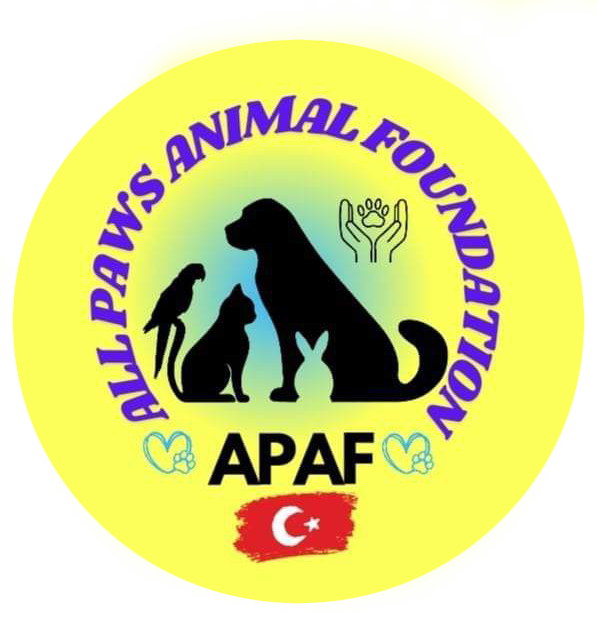FREQUENTLY ASKED QUESTIONS
Adopting a pet with All Paws Animal Foundation (APAF)
We operate a successful matching procedure, whilst we will always try to match your preferred choice this may not always be possible. Our aim is to match our dogs and cats with the perfect forever home, this is of the utmost importance to us.
If you are interested in adopting one particular animal please mention this on your form
*Please note fee's to bring an animal to the UK can vary and will depend on vets fee's, foster home and transport costs and you are responsible for these costs.
Application and Home check
Once you have submitted an online application and it has been approved, we will then process your application to the next stage which will involve a telephone call from one of our team.
We will then make arrangements with you for a home check visit with one of our volunteers who will contact you to arrange a mutually convenient time.
Please note you will not be told the outcome of your home visit by the volunteer who carries out your home visit. The information gathered will be passed onto the decision making team who will then be in touch with your outcome.
Bring a Dog or Cat to the UK
Bringing a dog or cat from Turkey to the UK, to live with you and your family can be very rewarding, giving the animal the chance of a forever home and a loving caring environment, you will be changing a life!
However, the process is long and is not cheap, but it is worthwhile and very rewarding.
The majority of the process is managed by a reliable vet locally and we can help find a foster home where the animal can stay for at least 4 months before they are ready to travel. (This is how long the process takes from the rabies injection).
1. Microchip
Your pet must be microchipped before, or at the same time as, their rabies vaccination. If you do not, they’ll need to be vaccinated again.
2. Passport
Once your pet has been chipped and has his/her passport, the dog/cat will need to receive their rabies vaccination.
The rabies vaccination will need to be recorded both in the animal’s vaccination booklet, and in the veterinary online database.
3. Blood Sample
At least 30 days after the rabies vaccination, the vet will need to take a blood sample and send it to the approved lab
4. Quarantine
If the dog/cat has sufficient rabies antibodies, they will need to complete a waiting period of three months (90 days) starting from the date the blood sample was taken. After the three month wait has been completed, your pet can travel to the UK at any time.
5. Travel
Your pet will need to travels via a DEFRA registered commercial transport company, who will transport them door to door via road (normally takes 5 days) for further information please see Travel Recommendations or please contact 4 Paws Pet Transport for further information about transport costs.
We strongly recommend the following:
a) Vaccinate the dog with the DHPPI vaccine as parvo and distemper are rife in Turkey.
We strongly recommend the following:
a) Vaccinate the dog with the DHPPI vaccine as parvo and distemper are rife in Turkey.
b) Disease testing prior to travel: Ask the vet for a ‘4lu test’ to test for Heartworm, Ehrlichia, Leishmania and Anaplasma.
Although not required for entry as of August 2024, UK vets require international dogs to be tested for Brucella so we strongly recommend to get a Brucella test for your dog in Turkey before travel.
*Please note fee’s to bring an animal to the UK can vary and will depend on vets fee’s, foster home and transport costs and you are responsible for these costs.
Travel Recommendations
(APAF) All Paws Animal Foundation - Currently uses 4 Paws Pet Transport, a commercial DEFRA approved road transport company. They may also be able to help you with the export process and finding a foster home, you can contact them directly via email - info@4pawspettransport.co.uk or please see there website for more information 4 Paws Pet Transport
Facebook -4 Paws Pet Transport
Bring Home your Newly adopted pet
Your new pet will need a minimum of two weeks to adjust to there new home and family. Even though your new pet has been evaluated by a rescue foster care provider to determine the obvious temperament of this animal, you must understand that there will be an adjustment period, since they are going into yet another new home situation. You need be evaluating their behaviour during this period.
During this time you need to carry on your normal daily routine as much as possible. DO NOT start trying to teach them anything new, with the exception of your normal household rules, be firm, but forgiving. You will start to see your new pet gradually relaxing as they become familiar with your routine and what you expect of them. Although you will want to be cautious when introducing your new pet to new people, take special care to understand that socialisation of a new pet with people outside your family will promote further trust.
Your new pet has to EARN your trust as well as you having to be able to trust them. Allow your new pet to approach you and use positive reinforcement to assure continued wanted behaviour.
When you feel your pet is comfortable with your family and vice versa, you can start with a training program, initially one new thing at a time.
Love, patience, kindness and understanding is the only way to heal an abandoned street animal. They always remember the abuse they have suffered but your relationship will grow with your pet and you will be rewarded with many years of pleasure.
